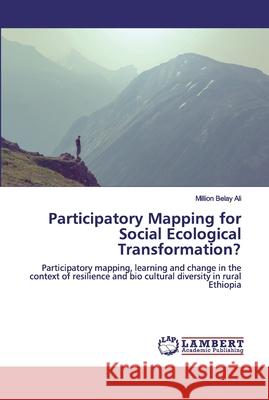Participatory Mapping for Social Ecological Transformation? » książka
Participatory Mapping for Social Ecological Transformation?
ISBN-13: 9786139580965 / Angielski / Miękka / 2019 / 460 str.
The book's contribution to knowledge lies in relation to the role of participatory mapping in facilitating learning, agency and social ecological transformation. As such, the book provides in-depth insight into how participatory mapping methodologies may 'work in the world'. It has tried to demonstrate how participatory mapping has managed to mobilize knowledge related to bio cultural diversity, facilitated the acquisition of knowledge and helped members of the community to engage in meaning making activities relevant to their bio cultural landscape and renegotiate their identity within the wider community context. It has also shown that dissonance is an important dynamic in the learning process; and that change occurs over time, but also in smaller cycles that interact at different levels;and that participatory mapping cannot, by itself mobilize significant structural change, at least in the short term. It has also shown, however, that learning and the desire for change can emerge from participatory mapping processes, and that this can be utilized to adapt to the changing socio-ecological environments, potentially contributing to longer term resilience of social-ecological system.











